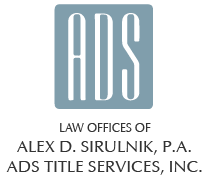
When signing a commercial lease agreement in Florida, landlords often require some form of guarantee from their tenants to secure their lease obligations. Owning and managing commercial property comes with significant risk, and without requiring the tenant to have some skin in the game, landlords could find themselves in real trouble if the tenant were to default on the agreement. This is where guarantees come in.
The two most common types of guarantees are personal guarantees and corporate guarantees. Understanding the differences between these guarantees and their implications is crucial for both landlords and tenants. Here’s what you need to know about personal guarantees if you own or are searching for property in South Florida:
Personal vs. Corporate Guarantees
A personal guarantee is an agreement where an individual (typically the business owner or a principal of the company) personally commits to fulfilling all lease obligations if the business entity fails to do so. A corporate guarantee, on the other hand, is when another business entity, often a parent company or an affiliated business, agrees to fulfill the lease obligations if the tenant company defaults.
While both offer increased protections for the landlord, personal guarantees have become more frequently used in commercial lease agreements and business loans in the past decade and a half. The financial crisis of 2008 further spurred the use of them as it became painstakingly obvious how tenuous the financial strength of some businesses can be.
While it’s commonly a best practice to keep personal and business assets separate, lenders and landlords today typically require someone to be liable if things go south – and they want that person to be someone other than a business entity or LLC. A personal guarantee offers a higher level of protection for the landlord and ensures that someone will have to pay up if the business closes its doors or defaults on its agreement.
Are the Terms of a Personal Guarantee Negotiable?
Personal guarantees are designed to benefit the landlord in a commercial lease agreement, but they may also restrict the tenant pool if a landlord is not willing to consider possible negotiations.
To strike a balance, an option commercial property owners might consider is to draft a limited personal guarantee, rather than unlimited.
For example, a limited personal guarantee might cap the obligations under a personal guarantee at 24 months rather than for the full length of the lease term (a.k.a. an “unlimited guarantee”). Alternatively, another option to consider is to offer a “rolling guarantee.” This could be one that puts a maximum threshold – say, 18 months from the date of default – as a period of time for which the personal guarantee is enforceable.
The implications of a personal guarantee–on commercial lease agreements in Florida must be seriously weighed by tenants and landlords. For help understanding the legal obligations and risks associated with personal versus corporate guarantees, talk to an experienced Florida real estate attorney. Our team at the Law Offices of Alex D. Sirulnik, P.A. can help with all areas of corporate and real estate law. Contact us today to schedule a consultation.



